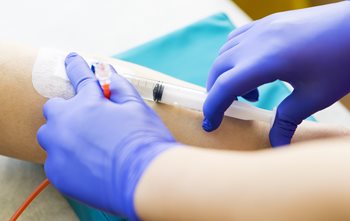
Embracing a Promising Off-Label Therapy: Low Dose Naltrexone (LDN) in Autoimmunity and Nursing Practice
Low Dose Naltrexone (LDN) is emerging as an intriguing treatment option for autoimmune and inflammatory disorders. Though it isn’t FDA-approved for these uses, growing clinical interest and early evidence suggest LDN may offer meaningful benefits in conditions like fibromyalgia, Crohn’s disease, multiple sclerosis, and more. At its core, LDN supports immune rebalancing and helps reduce inflammation while being low-cost and well-tolerated—making it especially relevant for nursing practice.
LDN and Autoimmune Disorders: What the Evidence Suggests
Preclinical and small clinical studies have highlighted LDN’s role as an immune modulator:
- A 2014 review noted that LDN appears effective in reducing symptoms of fibromyalgia, Crohn’s disease, multiple sclerosis, and complex regional pain syndrome. Daily LDN is inexpensive and well-tolerated, though evidence remains preliminary.
- Another review of rheumatological conditions found that LDN reduced pain and improved well-being in fibromyalgia and showed promise for rheumatoid arthritis, Sjögren’s syndrome, scleroderma-related itch, and dermatomyositis, without serious side effects.
- Broader exploratory sources note LDN’s potential applications across autoimmune diseases (like lupus, rheumatoid arthritis, Hashimoto’s), chronic fatigue, Long COVID, and even Parkinson’s disease.
Together, these findings lay the groundwork for LDN as an accessible, patient-centered complement to standard therapies—but more robust trials are needed to solidify clinical recommendations.
Why Nurses Are Central to Safe, Effective LDN Use
While LDN shows promise, its off-label status demands careful nursing involvement. Here's how nurses support safe and smart integration:
- Patient Education: Explaining that LDN isn’t FDA-approved for these conditions, reviewing potential benefits versus limitations, and setting expectations realistically.
- Symptom and Safety Monitoring: Encouraging symptom tracking (e.g. pain levels, fatigue, sleep), monitoring for side effects, and documenting progress thoroughly.
- Collaboration with Providers: Assisting with dosing adjustments, coordinating lab monitoring, and documenting clear communication with prescribers regarding off-label use.
- Ethical + Legal Awareness: Ensuring informed consent is obtained, documented, and aligned with institutional protocols—especially important when prescribing via compounding pharmacies.
Ready to Dive Deeper?
Our online continuing education module, Low Dose Naltrexone – Off-Label Applications in Autoimmune Disease Management, offers a comprehensive, nurse-focused exploration of LDN.
You'll learn:
- The history, mechanism, and rationale for "low-dose" use.
- Key clinical applications in autoimmune diseases, chronic pain, Long COVID, and beyond.
- Practical guidance on dosing, side-effect management, ethical considerations, and perioperative care.
- Chapter-end quizzes to reinforce key concepts and clinical competence.
Elevate your practice by exploring LDN’s evolving role in patient care—navigate the promise, understand the risks, and empower your patients with informed options.

